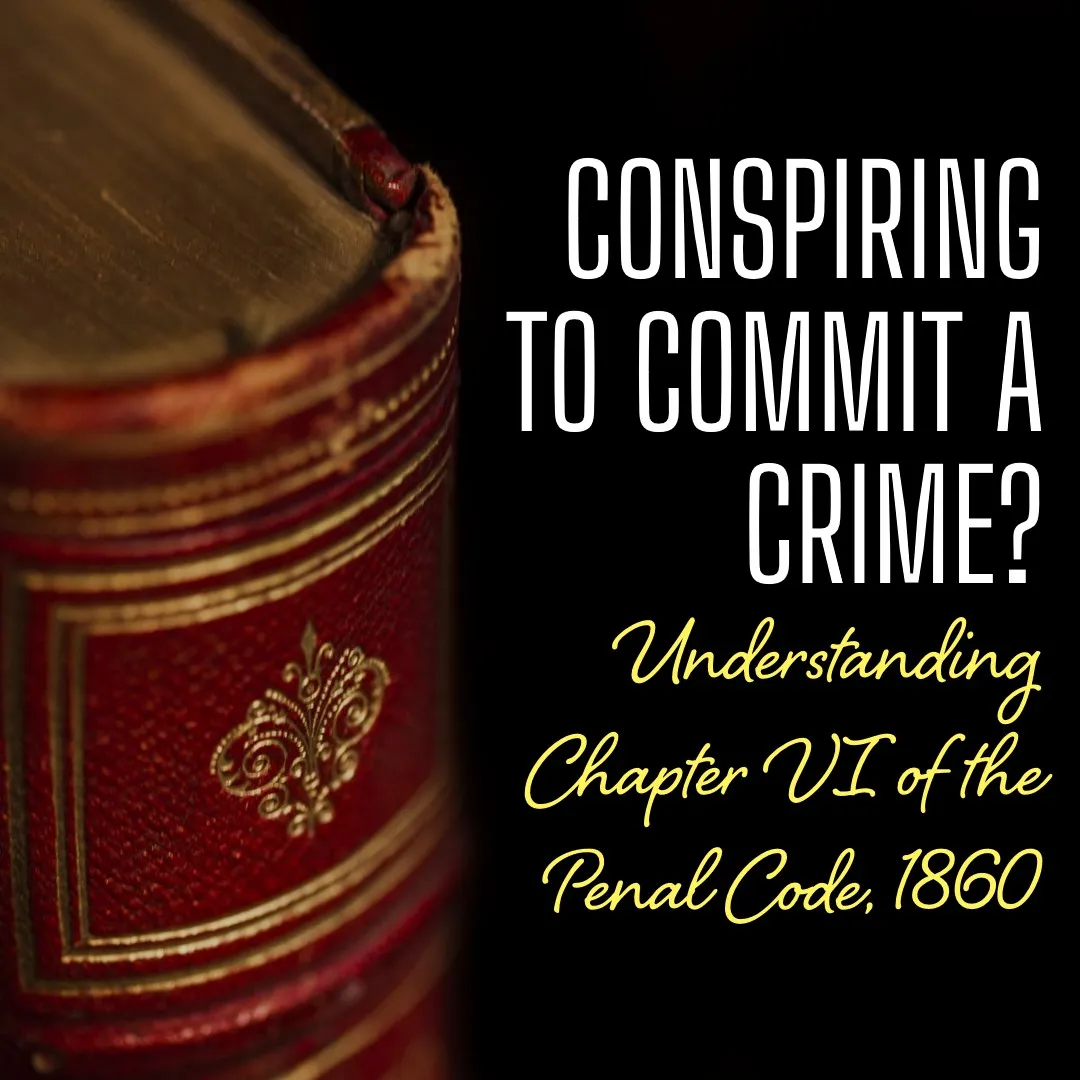
Section 120A (Criminal conspiracy)
A criminal conspiracy happens when two or more people agree to do something illegal together or to do something legal in an illegal way.
For a conspiracy to be considered criminal, some important things must happen:
- There must be an agreement between two or more people. Just one person thinking of doing something illegal is not conspiracy.
- The agreement must be about doing something illegal or doing something legal in an illegal way.
- After the agreement is made, at least one of the people involved must do some act to carry out the agreement. Just agreeing is not enough, some action must be taken.
It does not matter if the ultimate goal of the agreement is illegal or not. Even if the main goal is legal but they agree to use illegal means to achieve it, it will still be a criminal conspiracy.
Section 120B (Punishment of criminal conspiracy)
- If the criminal conspiracy is about committing an offense that is punishable by death, life imprisonment or at least 2 years of rigorous imprisonment, then the punishment for being part of that conspiracy will be the same as if they had helped/encouraged that offence.
- For conspiracies to commit other offences (less than 2 years imprisonment), the punishment is up to 6 months in jail or fine or both.
💡Conspiracy a crime punishable by death or life imprisonment or at least 2 years of rigorous imprisonment = Same of abetment. 💡Conspiracy, a crime punishable less than 2 years imprisonment = Imprisoned up to 6 months in jail or fine or both.
Introduction to Criminal Conspiracy
The concept of criminal conspiracy was introduced into the criminal law through the Criminal Law (Amendment) Act, 1913. Unlike other crimes where intent alone does not constitute a crime, criminal conspiracy involves the intention to commit a crime combined with the collaboration of individuals sharing that intent. This law aims to prevent the excessive power that can arise from a group’s combined efforts to commit harmful acts.
The support and encouragement conspirators provide each other make possible ventures that individual efforts could not achieve, justifying severe punishment for conspirators and abettors. A conspiracy continues as long as any member acts to further the common design. The foundation of a criminal conspiracy is an agreement to commit an offense, involving not just the intention but the agreement of two or more individuals to perform an unlawful act through unlawful means.
Elements of Criminal Conspiracy
To constitute a criminal conspiracy, the following elements must be present:
- An objective to be accomplished.
- A plan or scheme with means to achieve that objective.
- An agreement or understanding between two or more accused persons, committing to cooperate for achieving the objective.
- An overt act in jurisdictions where required by statute.
Ingredients of Criminal Conspiracy under Section 120A
The essential ingredients include:
- An agreement between individuals to conspire.
- An agreement to:
- Perform an illegal act.
- Use illegal means to perform an act that may not itself be illegal.
The meeting of minds between two or more individuals for performing an illegal act or an act by illegal means is crucial for criminal conspiracy. Courts must determine if individuals independently pursued the same end or collaborated to pursue an unlawful objective. Mere discussion or knowledge does not constitute conspiracy; there must be a physical manifestation of agreement.
Agreement as the Gist of the Offense
The core of the offense is the bare engagement and association to break the law, irrespective of any act being performed by the conspirators. The intention to commit a crime and joining hands with individuals with the same intention are necessary. A mere wish or thought does not suffice without an agreement to carry out the intended crime.
Actus Reus in Criminal Conspiracy
The actus reus in a conspiracy is the agreement to execute the illegal conduct, not the execution itself. A meeting of minds to pursue an unlawful purpose is essential, though it is not necessary for all conspirators to be in direct communication with each other.
Participation in Criminal Conspiracy
Not all conspirators need to be involved from the beginning to the end of the conspiracy. Some may join or leave the conspiracy at different times. The criminal acts done in furtherance of the conspiracy may depend on the group’s encouragement and support, making each member a causal agent to each act.
Sections 34 and 120A: Comparison
Section 34 involves the commission of a criminal act in furtherance of a common intention, requiring unity of criminal behavior. In contrast, Section 120A’s gist is the engagement and association to break the law, even if no illegal act follows.
Section 120B: Punishment of Criminal Conspiracy
Under Section 120A, the essence of the offense is a bare agreement to commit the crime. Criminal conspiracy is an independent and separately punishable offense. The punishment varies based on the severity of the intended offense, with harsher penalties for serious crimes.
Conspiracy to commit an offense is an offense itself, and individuals can be charged separately. Establishing conspiracy charges does not require knowing all conspirators or the detailed stages of the conspiracy; understanding the main objective and purpose is sufficient.






